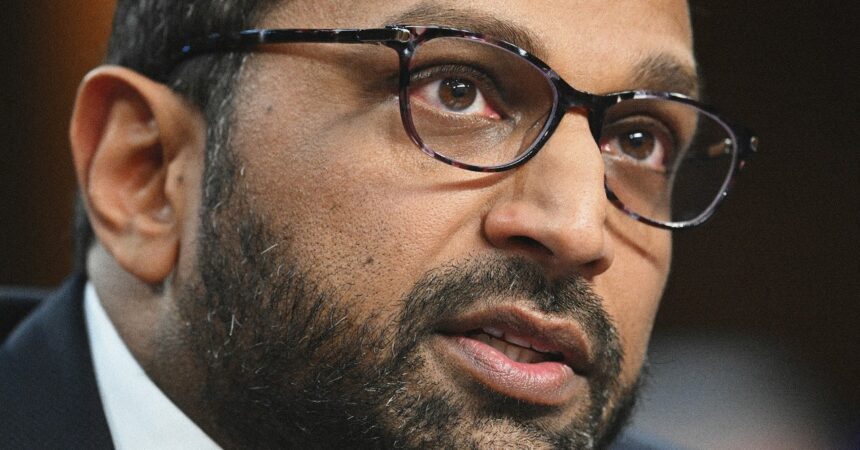Kash Patel, who has been nominated by President Donald Trump to lead the Federal Bureau of Investigation, possesses stocks worth between $1 million and $5 million in a firm that holds control over Shein, a controversial e-commerce and fashion powerhouse established in China. This information comes from lobbying and corporate records across three nations, as reviewed by WIRED. The records reveal that Patel began his consulting role for Shein just one month before the company engaged a lobbying firm where Pam Bondi, now confirmed as Trump’s US attorney general, was employed at the time.
In a mandatory financial disclosure, Patel informed US Senate members—who are anticipated to vote on his confirmation next week—that he has no intention of selling his shares in Shein if he assumes the role of FBI chief. He received shares in the rapidly growing fashion retailer, which is said to be valued at $50 billion, through “restricted stock units” (RSUs).
Restricted stock units are generally awarded to employees, and they usually cannot be turned into cash until a specified duration has passed or certain conditions are satisfied. Patel disclosed that his RSUs for Shein commenced vesting on February 1 and are expected to be dispensed quarterly.
Legally, an official in Patel’s position would not be required to divest or recuse themselves until a clear conflict of interest arises, according to Jordan Libowitz, vice president of communications at the watchdog organization Citizens for Responsibility and Ethics in Washington. “Nevertheless, the appearance of the scenario is not favorable,” he notes. “Thus, we would suggest divestiture or recusal from any matters involving Shein upon taking office.”
A representative working with Trump’s transition team mentioned that Patel has made significant efforts to address lawmakers’ inquiries. “The Senate has assessed all potential conflicts and concerns,” Arjun Mody stated in a message to WIRED. Shein has not responded to a request for comments.
In his financial disclosure, Patel indicated that he began consulting for Elite Depot Ltd., a Cayman Islands entity he described as a “fashion management company,” in April 2024. A review of corporate registration documents, lobbying disclosures, and public records from the US, UK, and Cayman Islands demonstrates that Elite Depot serves as the parent company of Shein.
Shein, celebrated for its low-cost clothing originating from China, faced significant scrutiny in Washington regarding its alleged unethical business activities when Patel started his consulting role with the company. Amid mounting controversy, Shein encountered hurdles in obtaining approval from financial regulators for an initial public offering (IPO) in New York. In February of that year, then-senator Marco Rubio from Florida, currently serving as Trump’s secretary of state, urged the US Securities and Exchange Commission to postpone Shein’s proposed IPO.
In a financial audit presented to regulators in the UK—where Shein is currently attempting to launch an IPO after its previous attempts in the US were thwarted—the company disclosed that its “ultimate controlling party is Elite Depot Limited, a firm registered in the Cayman Islands.” Public documents submitted to Congress by three different political lobbying firms advocating for Shein in Washington similarly indicate that Elite Depot holds a 100 percent ownership stake in the fast-fashion company.










